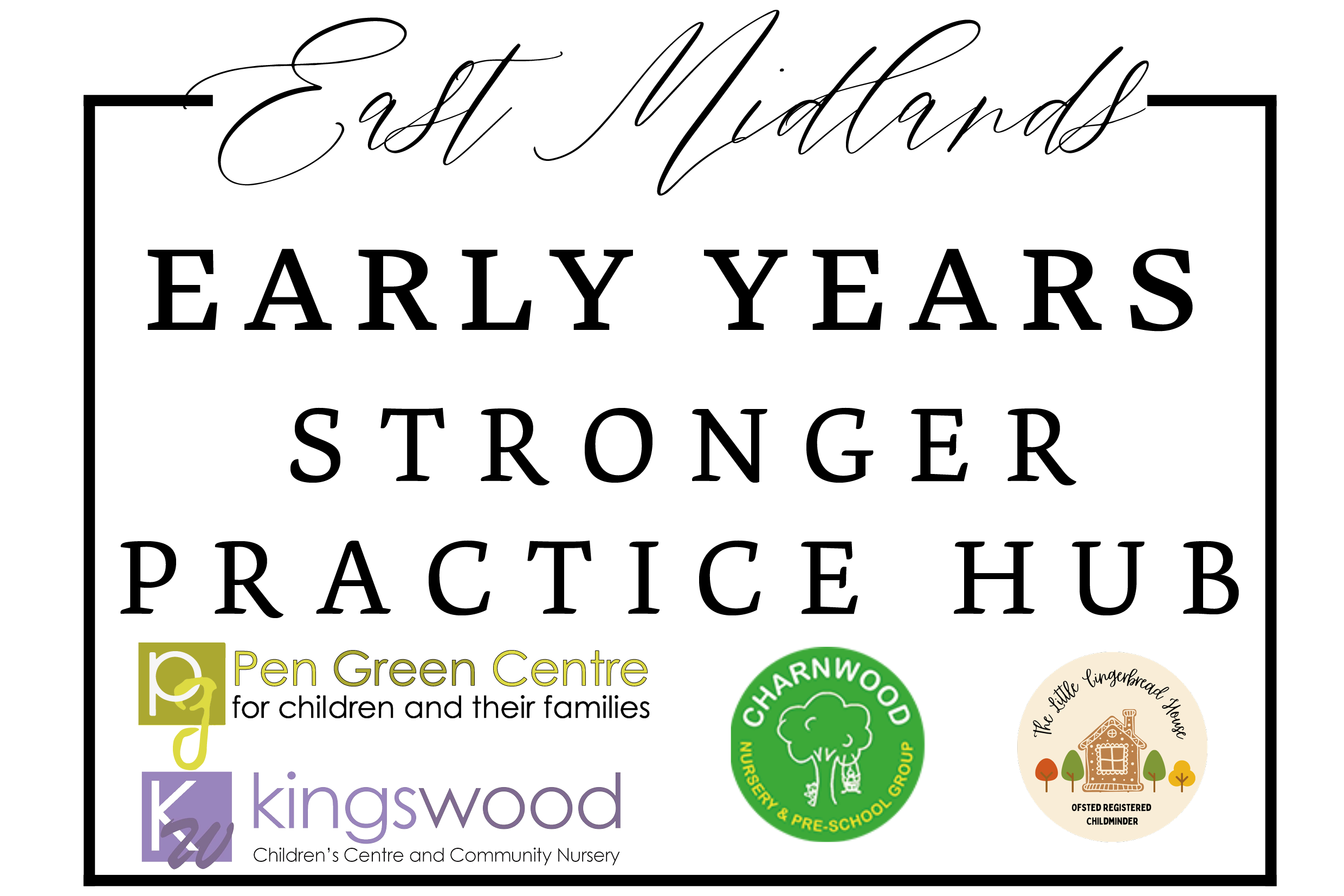By Dr. Mona Sakr and Dr. Sara Bonetti
On 20 June 2025, we were delighted to run a webinar titled “How Local Authorities and Nurseries Can Work Together to Improve Quality in the Baby Room”. Delivered in partnership with the East Midlands Stronger Practice Hub, the session brought together local authority early years teams, Stronger Practice Hubs staff and nursery managers to explore emerging findings from the Baby Room Project and the implications for improving quality in the baby room at a local level.
The Baby Room Project, led by Dr. Mona Sakr, Dr. Sara Bonetti and Kayla Halls, aims to develop a sector-led vision of quality in baby room provision across English nurseries. Funded by the Nuffield Foundation, the project involves a global evidence review, a survey with more than 300 baby room educators and nursery managers, and focus groups with 200 of them. Data collection has been embedded within a series of six free professional learning conferences for baby room educators and nursery managers hosted around the country, in response to the need for baby room-specific training identified in the evidence review.
During the webinar, we shared highlights from the project's global review of 165 academic articles and 20 grey literature pieces. Perhaps most striking for us is the fact that only 12 of these originated in the UK, which points to the important evidence gap in England that our project aims to fill. While international tools such as the ITERS and CLASS scales dominate the landscape, these often fail to reflect the nuanced needs of English settings. We see the disconnect even in the nomenclature: the words ‘baby’ and ‘baby room’ are commonly used in an English context, while our American counterparts use ‘infants’ (0-1 year olds) and ‘toddlers’ (1-3 year olds).
One key theme emerging from both the literature and early educators’ voices is the importance of structural indicators such as group size, ratios, and educator qualifications, which are seen as essential elements to ensure that the best conditions are in place to get it right in the baby room. While England fares well in terms of adult-to-child ratios, our lack of regulation around group size stands out internationally. Survey data from the project showed average baby room group sizes of 13, with some baby rooms taking 30 babies. Evidence shows that large group sizes for the youngest children pose significant challenges for attuned and responsive care, and also create noisy and chaotic environments that do not best support development.
We have also explored status among the baby room workforce, finding that educators often feel undervalued and misunderstood, especially by parents who may view them as “just babysitters”. Yet our conversations reveal deep knowledge, intentionality and joy in working with babies. Baby room educators and managers expressed a strong desire for hands-on, baby-specific training that goes beyond legislation and policies, to focus on relationships, attunement, and babies’ development and learning.
The webinar concluded with inspiring examples of how local authorities and stronger practice hubs teams are already driving change working in collaboration with nurseries. We shared how York’s early years and finance teams enabled more flexible settling-in arrangements by working creatively within funding rules. In Thurrock, local advisors support quality improvement with on-site visits and embedded CPD. We shared the efforts in Norwich to build a more integrated baby room network, inclusive of health professionals and supportive of more effective inter-professional working.
Great early years practices we heard about
In the Q & A, we loved hearing about local examples of supporting high-quality provision in the baby room. We heard about:
- Staggered settling-in periods supported by flexible funding, which represent a practical step to ease transitions for babies and parents.
- Face-to-face professional development and follow-up visits to model quality interactions and build confidence.
- Baby room-specific networks, including one proposed for the East Midlands, to promote peer learning and reduce professional isolation.
- Partnerships with health professionals, such as perinatal mental health nurses and health visitors, to offer wraparound support.
- Forest school sessions for babies, showing creativity in outdoor learning even for the youngest children.
- Celebrating and showcasing baby room practices, from shared photos to open parent sessions, to help make the baby room more visible and increase baby room educators’ status in parents’ eyes.
These ideas reflect the sector’s commitment to improvement, even amid challenges around funding, staffing and recognition. They also demonstrate the power of connecting nurseries and local authorities to co-create solutions that are locally relevant and child-focused.
The webinar recording can be found here
https://www.pengreen.org/webinar-baby-room-recording/
